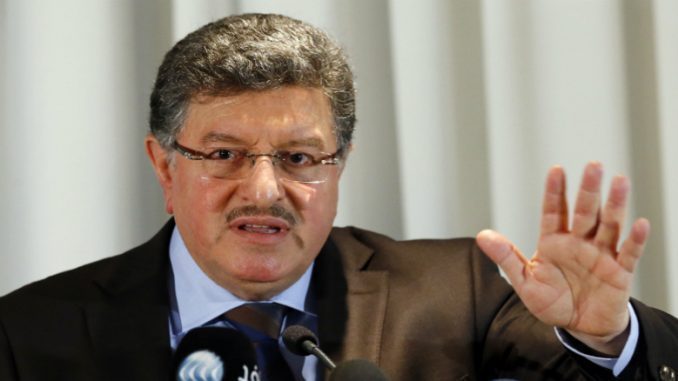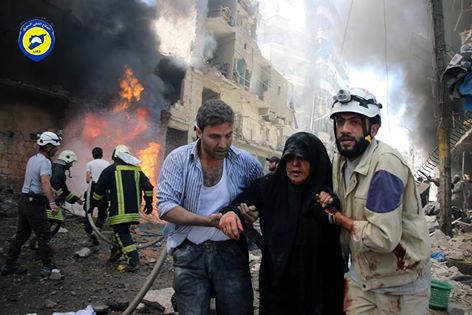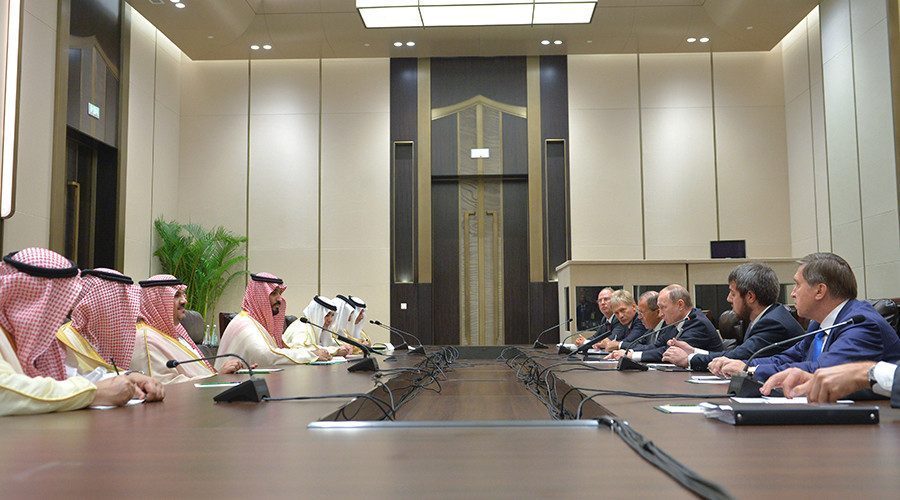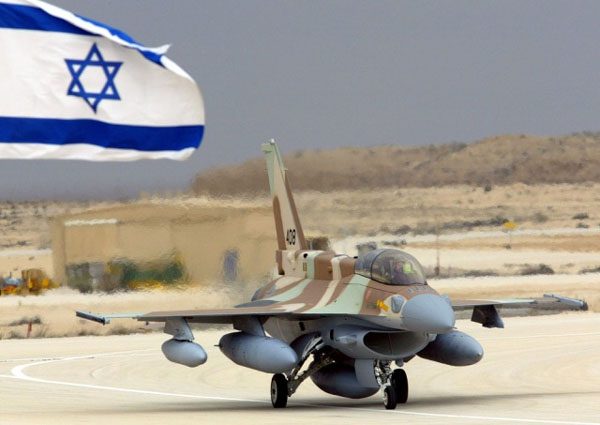
The Syrian opposition’s main bloc has said that it wants negotiations with the Assad regime’s delegation about a political transition in the next round of peace talks in Geneva next week.
Russia said it has a new plan for Syria peace talks which can be achieved with powers that have a real effect on the Syrian ground after its forces backed Assad regime to achieve many victories against the opposition and tilted the tide of war in his favor.
Russia, Iran, and Turkey said they were ready to help broker a Syria peace deal, and organized peace talks meeting in Kazakhstan on January 23.
The talks have ended with Russia, Turkey, and Iran making a joint statement about the consequences of the talks and agreeing on a mechanism to support a delicate ceasefire and to support a new round of peace talks in Geneva.
The Syria peace talks had been planned to begin in Geneva on Feb. 8, but the UN envoy for Syria, Staffan de Mistura, said that he had decided to delay the UN-sponsored talks until February 20. in order to take advantage of the results of Astana talks.
With this delay, he also gave the both parts more time to choose their policy and delegations.
Political transition is an essential demand
The Syrian opposition has always demanded that the political transition should be the key point in the peace talks efforts, as changing the regime is the first step in ending the war.
Salim al-Muslit, spokesman of the High Negotiations Committee (HNC), said the opposition was sticking to its position that President Bashar al-Assad can have no role in the transition, saying “the heavy price paid by the Syrian people” would have been wasted if he remained in power.
Muslit said the HNC, which includes rebel groups and political opponents of Assad, wanted to start the negotiations by discussing a governing body to oversee the transition.
“We want direct negotiations, we want to save time, we want a quick end to the suffering of the Syrian people,” said Muslit. But he said the opposition had yet to receive an agenda for the talks, which are due to begin on Feb. 23 following preliminary meetings beginning on Feb. 20.
Turkey, which has been a major supporter of the rebellion against Assad, has jointly brokered with Russia a ceasefire to pave the way for the talks.
Despite the ceasefire, Muslit said Assad and his allies were “still carrying out crimes” and he accused them of preparing a major assault against the rebel-held Ghouta region to the east of Damascus.
“We now want to get into the essence of the political process – the discussion of the political transition – and what the Geneva 1 communique stipulated about the formation of a transitional body with full powers,” Muslit said.
He was referring to the Geneva communique of 2012 calling for the establishment of a transitional governing body with full executive powers that could include members of the present government, the opposition and other groups. The communique said it should be formed on the basis of mutual consent.
De Mistura’s aim
The U.N. envoy to Syria seems to have the same goal, as he said that negotiating a political transition for the war-torn country will be the sole item on the agenda for upcoming talks between the government and opposition in Geneva.
Staffan De Mistura emphatically rejected any change to the agenda, saying it would open a “Pandora’s box” of stalling and time-wasting.
“Geneva will not be about the procedure, but about the future,” he told reporters in joint press conference with Italian Foreign Minister Angelino Alfano, in Rome.
The envoy said the agenda is fixed in U.N. Security Council Resolution 2254, which mandates a new form of governance for Syria, a new constitution, and new elections. The resolution was adopted unanimously by the Security Council in 2015.
The envoy urged the opposition to present a unified front at Geneva, in order to deprive the government of the allegations that it doesn’t know who the opposition is.
The HNC, therefor, has named a 22-member delegation to the Geneva talks, including representatives of dissident groups that have strongly opposed the armed revolt against Assad.
“We are trying to persuade the opposition to be as united as much as possible,” said de Mistura.
“We will see the result of this in the coming days because it is important that the government doesn’t have the alibi of saying ‘I don’t know who is the opposition’.”
The UN wants all the groups that describe itself as opposition t be represented in one delegation, a goal that seems hard to reach as huge differences pose itself between them. Therefore, selecting the HNC for the delegation from among its allies may be not accepted by the UN.
Other than the HNC, there are many other groups that are considered by the UN to be among the opposition including the Kurdish political wing of the YPG forces, the Cairo platform, and the Damascus platform which is backed by Russia.
These groups have doesn’t share the HNC’s view of Syria’s future and have been accused of hindering the political process. Damascus group, for example, is said to unify the opposition figures inside the country. Most of them refused the revolution when it started and formed their delegation after the UN started its political efforts to end the war. The group is supported by Russia, accepts the idea of Assad being in power and back the Russian air campaign against Syrian civilian saying its aim is fighting terrorists.
The Syrian crisis began as a peaceful demonstration against the injustice in Syria. Assad regime used to fire power and violence against the civilians and led to armed resistance. 450.000 Syrians lost their lives in the past five years according to UN estimates, and more than 12 million have lost their homes.



